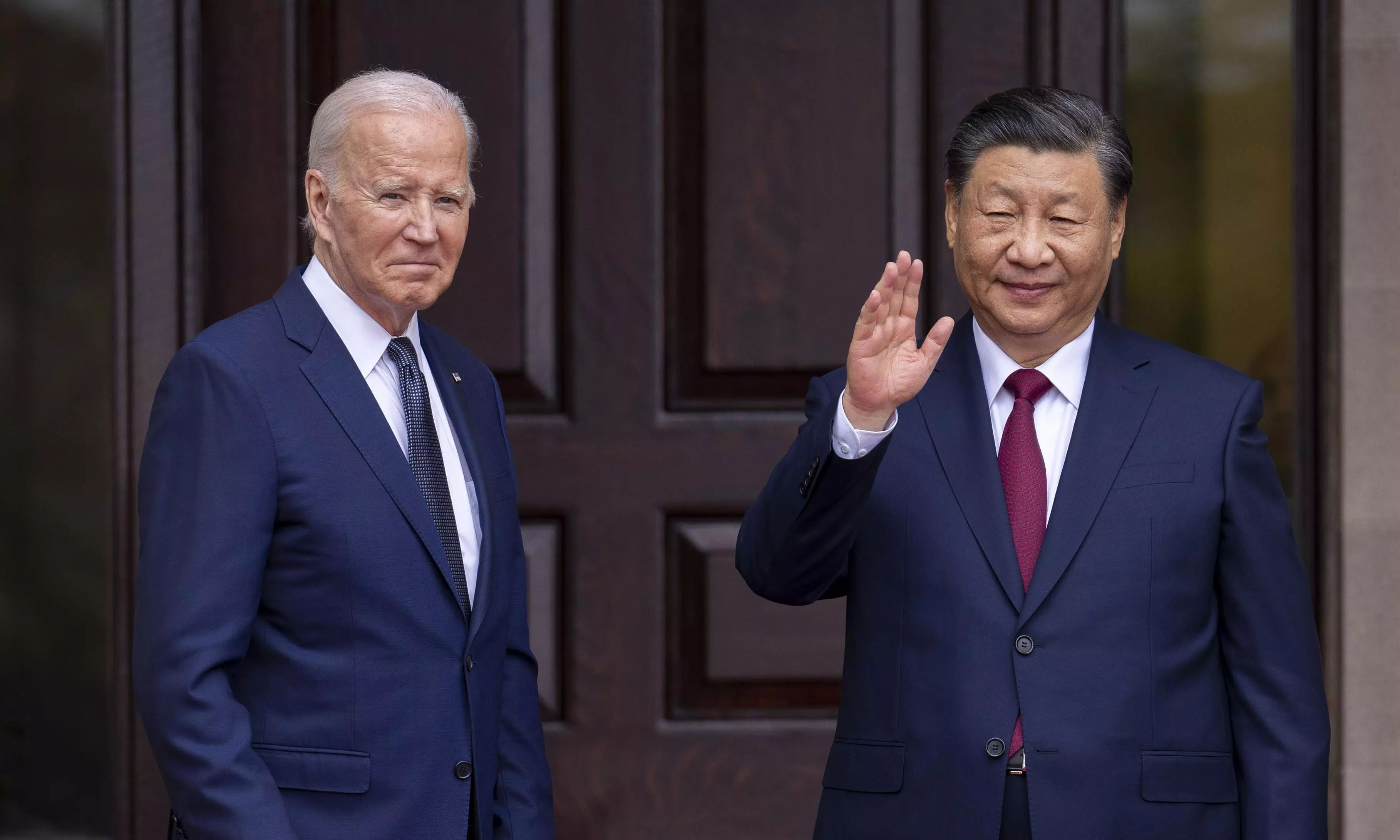
- Home
- India
- World
- Premium
- THE FEDERAL SPECIAL
- Analysis
- States
- Perspective
- Videos
- Sports
- Education
- Entertainment
- Elections
- Features
- Health
- Business
- Series
- In memoriam: Sheikh Mujibur Rahman
- Bishnoi's Men
- NEET TANGLE
- Economy Series
- Earth Day
- Kashmir’s Frozen Turbulence
- India@75
- The legend of Ramjanmabhoomi
- Liberalisation@30
- How to tame a dragon
- Celebrating biodiversity
- Farm Matters
- 50 days of solitude
- Bringing Migrants Home
- Budget 2020
- Jharkhand Votes
- The Federal Investigates
- The Federal Impact
- Vanishing Sand
- Gandhi @ 150
- Andhra Today
- Field report
- Operation Gulmarg
- Pandemic @1 Mn in India
- The Federal Year-End
- The Zero Year
- Science
- Brand studio
- Newsletter
- Elections 2024
- Events
- Home
- IndiaIndia
- World
- Analysis
- StatesStates
- PerspectivePerspective
- VideosVideos
- Sports
- Education
- Entertainment
- ElectionsElections
- Features
- Health
- BusinessBusiness
- Premium
- Loading...
Premium - Events

Even as the two leaders dwelt on a host of common issues, a small indiscretion by Biden, calling Xi a ‘dictator’ at a presser, would have worsened matters. China saved the day by ignoring the remark
The world’s most consequential bilateral relationship thawed a little, with the first meeting between US President Joe Biden and his Chinese counterpart Xi Jinping since the Bali G20 meet last November, on the sidelines of the Asia Pacific Economic Cooperation summit at San Francisco. No major breakthroughs were expected, and expectations were not belied. What would have been a fruitful exercise in breaking the ice between the two leaders was given a layer of avoidable frosting, after the summit, by the media, which made Biden call Xi a “dictator”.
Welcome development
That the two leaders met, for over four hours, and dispersed without either side saying anything more disparaging than the admission that the talks were candid — diplomatese for “yes, there were differences of opinion” — is itself a welcome development. This opens the possibility of sustained dialogue at levels lower than that of head-of-state, which could lead to tangible agreements that the leaders could sanctify later. As it so happened, the summit did produce some tangible agreements, beyond the show of warmth between the two leaders.
Agreement has been reached on resuming military level communications. This is welcome, and would contribute to avoiding unintended conflict between the two superpowers, particularly in the South China Sea, which China sees as its backyard and where the US carries out the freedom of navigation exercises to assert the non-exclusive character of the expanse of water in question.
China’s sensitivity to US’ fentanyl menace
China agreed to act against companies that engage in illegal drug trade in the US, and even set up a committee to this end. This does not quite address US concerns about China’s export of the precursor chemicals to the production of fentanyl, a synthetic opioid that is 50 times stronger than heroin and 100 times more potent than morphine. Overdosing on opioids is a major cause of death in the US. Chinese companies do not necessarily engage in illegal drug trade in the US to cause these deaths. Chinese companies just need to make largescale legal exports of the precursor chemicals to Mexico, where drug cartels convert them into fentanyl and smuggle the stuff into the US. Every part of the US now has a fentanyl problem.
Curbing the supplies of drugs is, of course, a cop out, as it comes in combination with abdication of the harder task of creating social conditions and cultural attitudes that reject, rather than seek out, mind-altering substances. That said, Chinese readiness to be sensitive to America’s fentanyl problem is better than callous disregard to this health emergency.
In the run-up to the summit, the two sides issued statements expressing willingness to cooperate on the climate challenge, to pursue efforts to triple renewable energy capacity globally by 2030. What this means is that even without any Chinese commitment to retrench its coal-based power generation capacity, the share of coal in the overall energy mix would come down. This matters, as the climate summit, COP 28 just weeks away.
Taiwan conundrum
On Taiwan, an area of candour in bilateral talks between the two powers, the US expressed itself in favour of the status quo. That rules out Taiwanese independence. That should have been reassuring for the Chinese, but is not. China wants to integrate Taiwan into the mainland. Xi Jinping said as much: “while peace, an accompaniment of the status quo, is good, we need to resolve the issue as well,” he said.
Taiwan was home to an aboriginal people, who have more in common with the Polynesians than with the Chinese. While Han Chinese had moved in over the centuries, the indigenous people were driven out or colonised only when the defeated forces of Chiang Kai-Shek fled the mainland in 1948, retreating from Mao’s People’s Liberation Army, and took refuge on the island. Taiwan had been colonised by the Japanese, who surrendered it to the Republic of China, following Japan’s defeat in World War II. From the point of view of the descendants of the original inhabitants of Taiwan, there is irony in Taiwanese protestations against likely invasion by Mainlanders.
On US import tariffs on Chinese goods and export restrictions, there has been no significant advance. Biden would not be keen to remove import duties in the run-up to the 2024 presidential elections, when Trump would be promising stronger protection against the Chinese “stealing” American jobs via ‘unfair’ exports to the US. The US would like China to abandon its policy of extracting trade secrets in return for granting access to China’s giant market.
There has been talk on the very many areas of shared interest that superpowers tend to have, from the wars in Ukraine and Palestine to Artificial Intelligence. Such exchanges are welcome, even if these do not immediately lead to any concrete agreements, as they lay the ground for essential convergence of views.
Biden’s ‘dictator’ swipe at Xi
At a press meet after the summit, a journalist asked Biden if he would still consider Xi a “dictator”, an impolitic term employed by Biden during the worst period of Sino-US tensions. Not being quick of wit like a Barack Obama, Biden did not duck the question. It would have been a simple matter for Biden to turn around and ask the reporter if he wanted to put words into his mouth or insert himself in the diplomatic process by asking such a question. But no, Biden chose consistency, described by some as the virtue of a donkey in the face of changing circumstances, and said yes, he would consider Xi a dictator.
It is worth noting that instead of taking offence, the Chinese just ignored the remark, except for a curt dismissal by a foreign ministry spokesperson. Speaking later at a select gathering, Xi dwelt on the theme of people-to-people relations as the foundation of lasting ties between states, and did not comment on Biden’s remark. Xinhua, the official Chinese news agency, avoided any notice of any dictator on the premises.
This absence of even a serious yap of protest, in the face of what could have been construed as needless rudeness on Biden’s part, is as significant as the dog that did not bark was for Sherlock Holmes. There are grounds for optimism on ties between the US and China.
(The author is a senior journalist based in New Delhi)
(The Federal seeks to present views and opinions from all sides of the spectrum. The information, ideas or opinions in the articles are of the author and do not necessarily reflect the views of The Federal)


